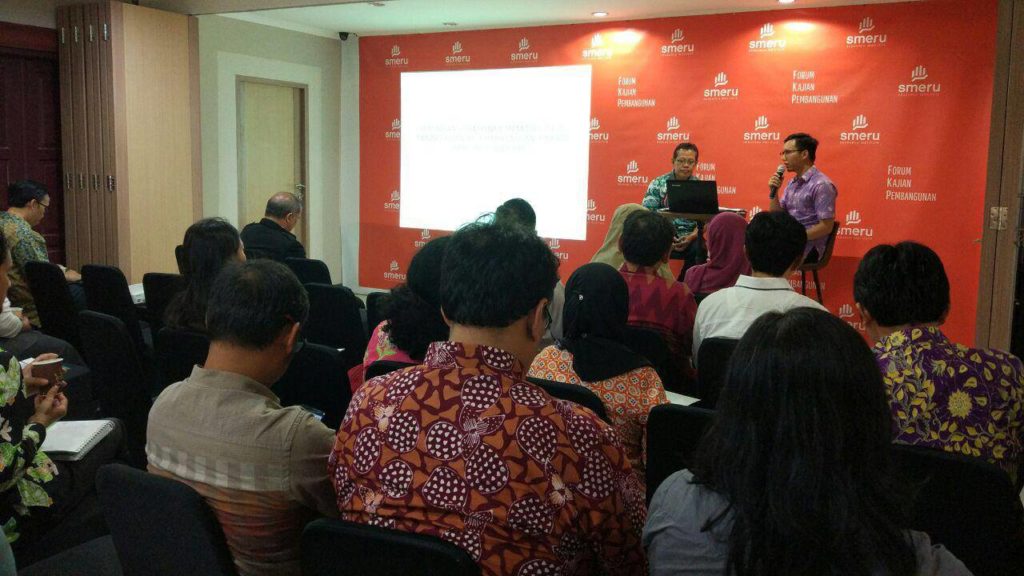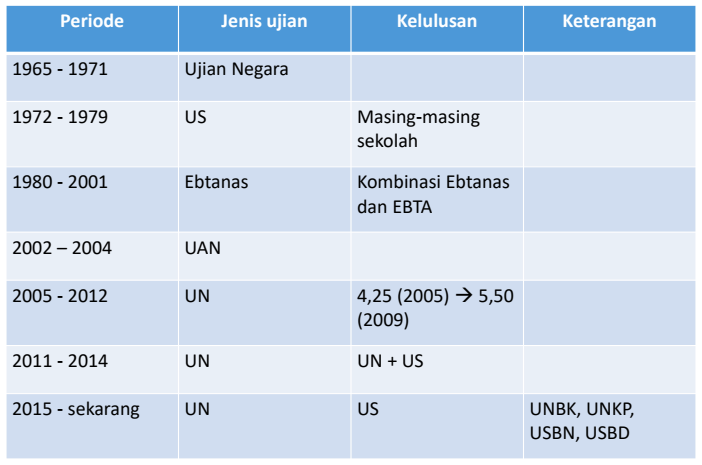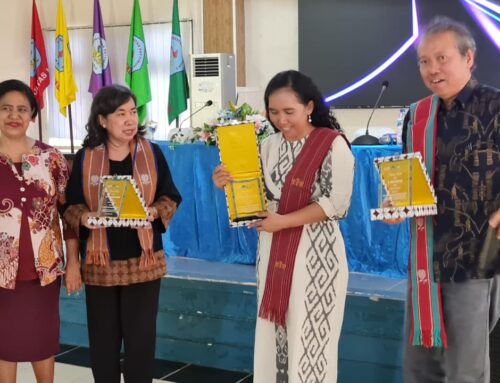On 19 October 2017, SMERU Research Institute hosted the third FKP Seminar in October at Cikini, Jakarta. In this seminar, Akhmadi (SMERU Research Institute) presented a study entitled “The Change of Student Scoring System to Improve Student Learning Outcomes: Preliminary Findings of SABER-Like Study”, a diagnostic study coordinated by SMERU Research Institute, The Amsterdam Institute for Global Health and Development (AIGHD), and Mathematica Policy Research, which was conducted from August to September 2017.
Education, as a tool for knowledge proliferation, encompasses not only learning and teaching process, but also student evaluation process that generally takes form of tests that can be turn into score. The interconnection between teaching and learning process and evaluation process is not necessarily linear; in fact, there are many times where evaluation process influence the learning outcomes. This study embarked from the very same issue in Indonesian context, which education system follows Law No. 20 of 2003 on National Education System. Akhmadi and the team used qualitative approach, specifically named as System Approach for Better Education Results (SABER) and focus group discussion and interview with education stakeholders at the central government level.
The national education system law requires student evaluation to be conducted at the national level as a part of student quality management in Indonesia. Hence, Ministry of Education and Culture through Center of Educational Evaluation organizes the national examination each year for primary to senior level of education. The examination procedure had undergone several changes (as noted in the table above). After being the sole determinant of student eligibility to complete a certain level of education for 10 years (2002-2012), government enacted minister regulation to include school-level evaluation as a determinant in 2011 and formally dismiss national examination as a determinant of school completion while retaining its practice to merely monitoring the student quality across Indonesia in 2015. This major change was associated with cheating by students and often ironically supported by schools and local governments to minimize the number of failed students. The government was said to keep committed by turning national examination result into a basis of educational quality mapping. Moreover, the government is now trying to implement computerized national examination in all regions to cut the budget and minimize the possibility of cheating during the examination. However, Akhmadi found that the implementation of computerized national examination was still obstructed by limited internet connection and electrification. This was particularly true in rural schools, where the examination often halted because of the connection problem.
Some participants suggested Akhmadi to investigate further to answer the question of whether the national examination is still necessary, to enrich the findings. Another participant also asked that, perhaps, the whole education system itself was already faulty, thus, we need to ask a broader question.


![[FKP hosted by ANU Indonesia Project] COVID-19, food insecurity, and cash transfer in Cambodia](https://www.fkpindonesia.org/wp-content/uploads/2024/02/fkp-2024-03-21-thumbnail-500x383.jpg)
![[FKP hosted by ANU Indonesia Project] Is it a curse or blessing to have a resource-rich neighbour?](https://www.fkpindonesia.org/wp-content/uploads/2024/02/fkp-2024-03-13-thumbnail-500x383.jpg)
![[FKP hosted by Universitas Padjadjaran] Kesehatan ibu pasca melahirkan di Indonesia](https://www.fkpindonesia.org/wp-content/uploads/2024/02/fkp-2024-02-21-thumbnail-500x383.jpg)

![[FKP hosted by ANU Indonesia Project] The pursuit of food self-sufficiency in Indonesia: food-trade policy preferences during the administrations of Yudhoyono (2004-2014) and Widodo (2014-present)](https://www.fkpindonesia.org/wp-content/uploads/2024/01/fkp-2024-01-16-500x383.jpg)